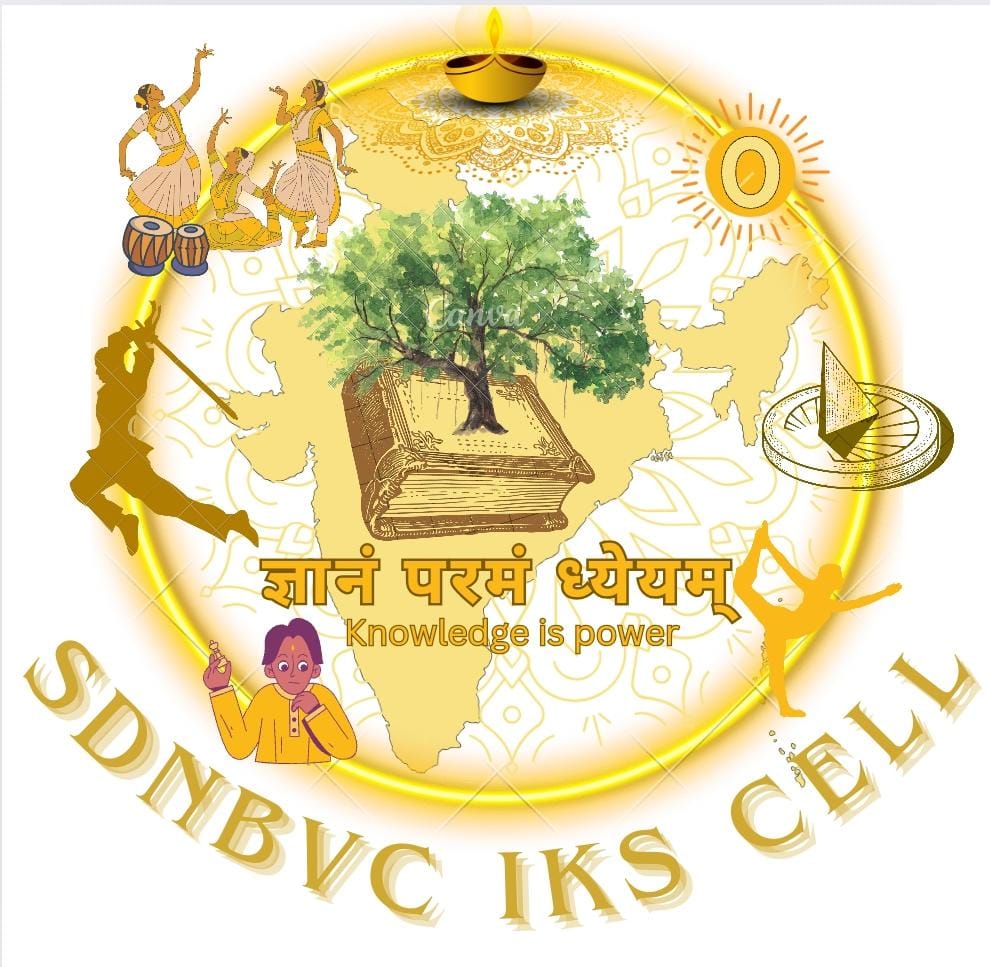
Vision
To promote interdisciplinary research by disseminating IKS for societal applications
Mission
To create awareness on the ancestral knowledge in the diverse fields through academia
About IKS
The functionality of Indian knowledge System Cell started in 2023, though IKS transpired to students through curriculum and varied activities for decades.
Indian knowledge system refers to the rich and diverse tradition of knowledge that has evolved in the Indian subcontinent over thousands of years. India has a long history of philosophical and spiritual traditions. These systems delve into the nature of existence, consciousness, ethics, and the pursuit of enlightenment.
The Indian knowledge system has made outstanding contributions in the field of Medicine , Mathematics, Astronomy, Language and Literature, Arts and Architecture, Social Sciences.
These contributions highlight the depth and diversity of the Indian knowledge system, which continues to inspire and influence many people around the world.
IKS Cell Coordinators :
- Dr.S.Alamelu, Associate Professor& Head – PG Department of Applicable Mathematics (SFS) .
- Dr.C.Yogambal, Assistant Professor& Head – Department of Sanskrit ( Aided ).
- Dr.K.Padmavilasini, Associate Professor – PG Department of Tamil ( SFS ).
Objectives of IKS in SDNBVC :
The Indian knowledge system- Ancient traditions and Philosophy
Cultural Preservation :The main objective of IKS in SDNBVC is the preservation and transmission of cultural heritage and ensuring their continuity across generations.
1. Integrating Indian Knowledge Systems (IKS) through various strategies and initiatives:
- Curriculum Revision: Review and revise existing curriculum frameworks to incorporate modules and courses dedicated to IKS by offering Non Major Elective. This can include subjects such as Tamizh Ariviyal to Under Graduate Students.
- Faculty Development Program: Training and professional development opportunities for faculty members to enhance their knowledge and understanding of IKS. This can be achieved through attending training Programs ,Workshops and collaborations with experts in the field.
- Collaborations and Partnerships: MOU with Bharath Gyan to promote and disseminate knowledge about our rich heritage and achievements. These initiatives may include educational programs, focused on showcasing India’s diverse cultural and intellectual heritage.
- Digital Platforms and Resources: Developing digital repositories, online courses, that make IKS within reach to a wider audience. Utilize technology to preserve and disseminate traditional knowledge, including e and interactive learning platform.
2. Activities under the Indian Knowledge System (IKS):
IKS Cell of SDNBVC aimed at promoting, and applying traditional Indian knowledge in various forms.
- Cultural engagement Programs: Organizing cultural immersion programs, that expose students to the rich diversity of Indian cultural heritage.
- Language Revitalization: Promoting the study and use of traditional Indian languages, including Sanskrit, Tamil, Hindi and others which are repositories of ancient knowledge. This involves language revitalization efforts, translation projects, and the creation of digital resources in indigenous languages.
- Celebrating MATHRU BHASHA DIWAS- Teaching basic words and conversations through this event.
- Commemorating Birth Anniversary of Sri Subramanya Bharathi and observing “Thai Mozhi Dinam”
INTERNATIONAL SEMINAR REPORT – July 4, 2024
To View – IKS International Seminar Report
IKS Workshop on Tamil Ariviyal
IKS Workshop – “ A Two Day Workshop On Tamil Ariviyal”
INVITATION:
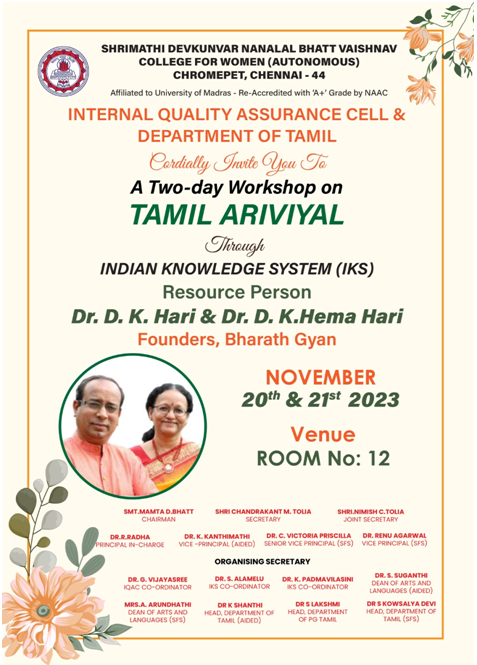
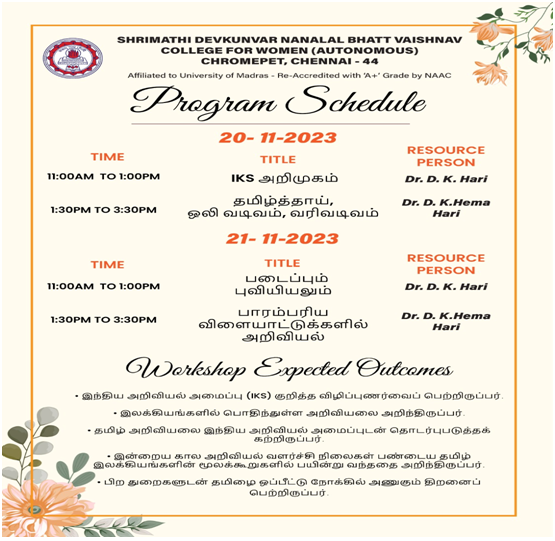
Photos:
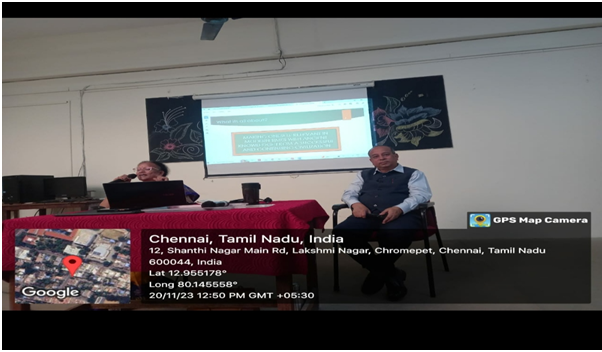
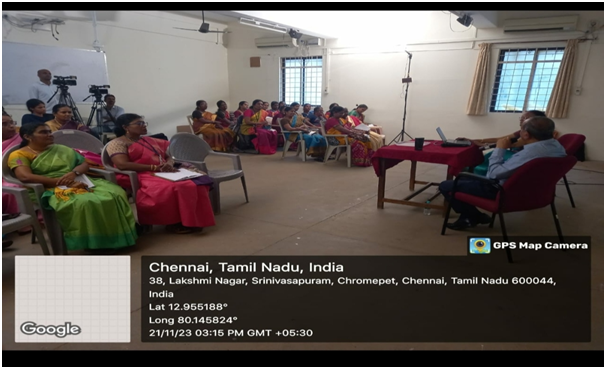
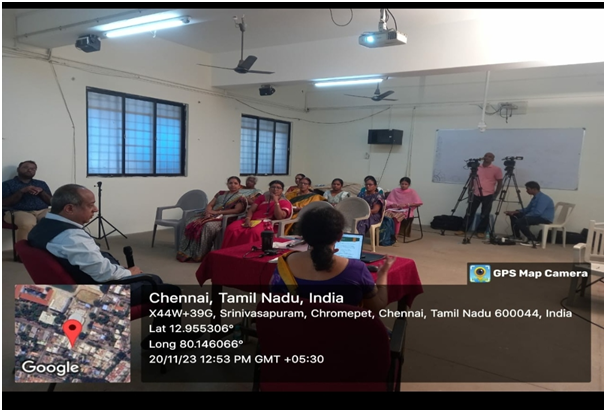
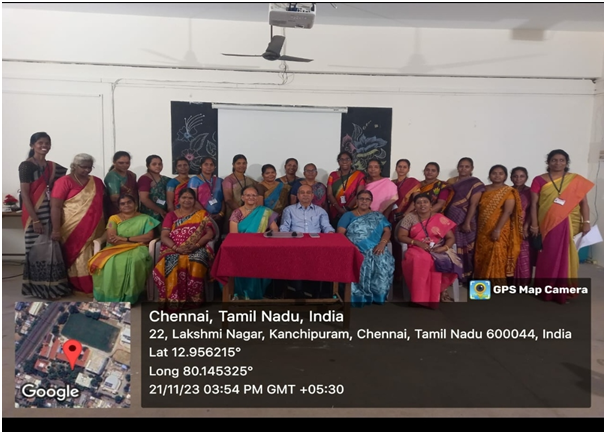
Profile : https://rb.gy/onqj2s
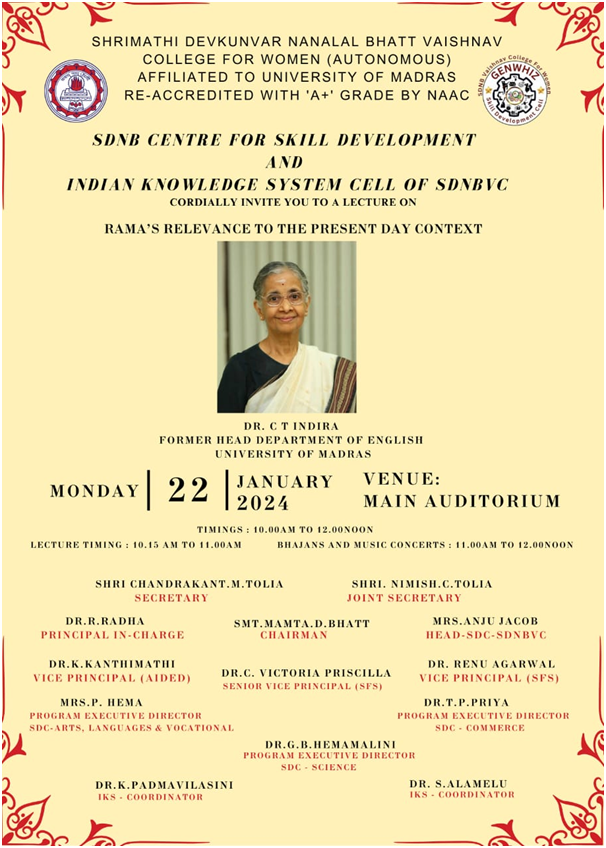
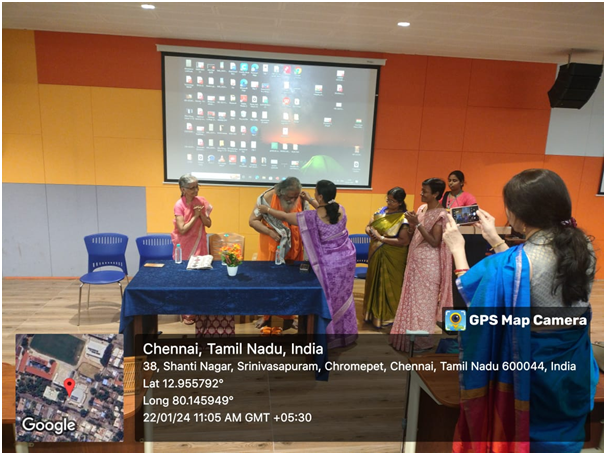
Language Revitalization:
Promoting the study and use of traditional Indian languages, including Sanskrit, Pali, Tamil, Telugu, Kannada, and others, which are repositories of ancient knowledge. This involves language revitalization efforts, translation projects, and the creation of digital resources in indigenous languages.
These activities collectively contribute to the revitalization, preservation, and promotion of Indian knowledge systems, ensuring their continued relevance and significance in the contemporary world.
Expected outcome:
By implementing these strategies, higher education institutions can play a vital role in promoting and preserving Indian knowledge systems, enriching academic discourse, and fostering a greater appreciation for the cultural heritage of India.








